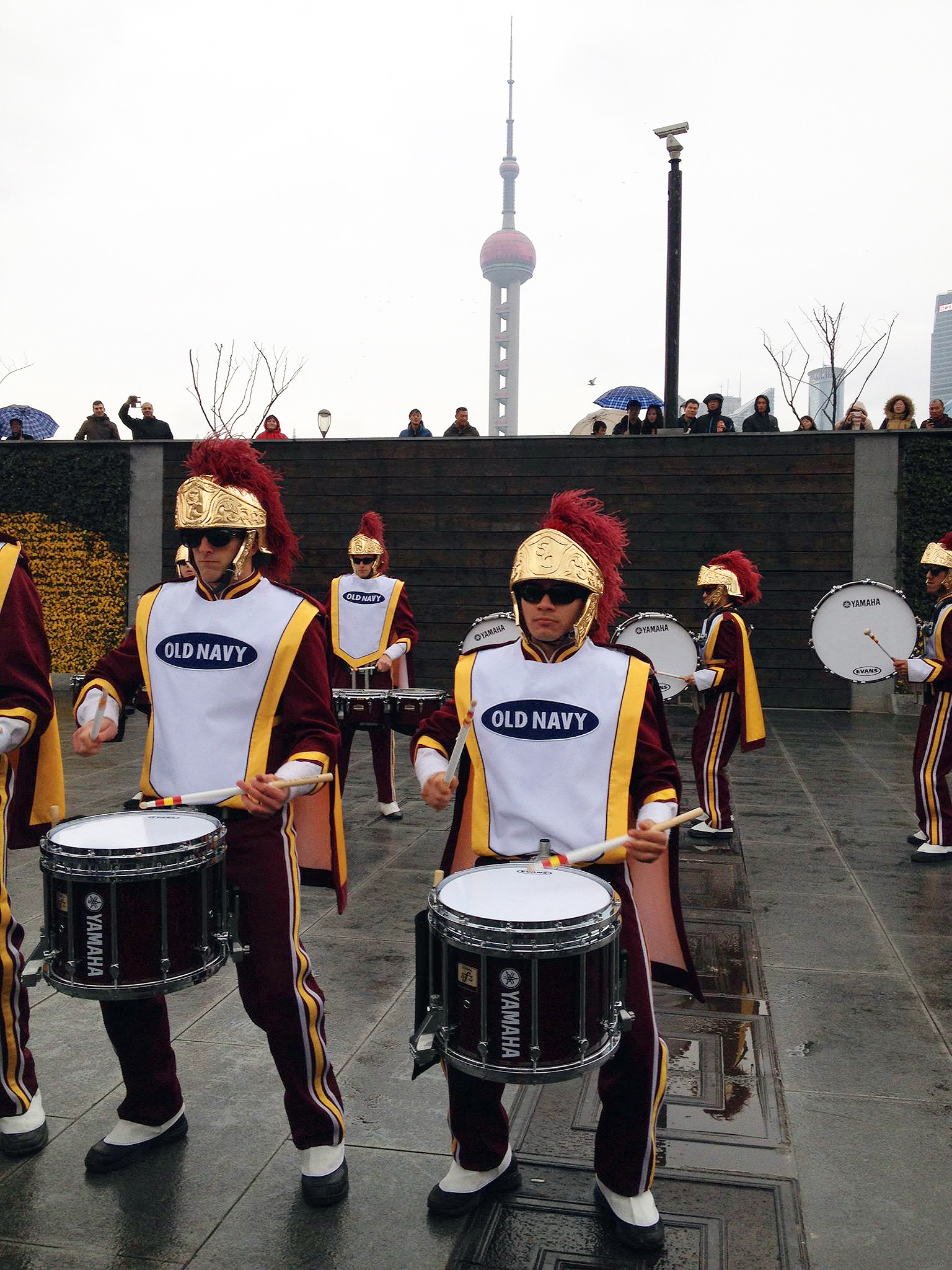Background: The Trojan Marching Band is known as Hollywood’s Band for its many, many appearances in tv, movies, and advertisements. They have appeared in shows like Glee and Scrubs, movies like Forrest Gump, and programs like the Black Entertainment Television (BET) Awards. Through these connections, the band has also taken part in various events for companies around the world. In 2014, Gap Inc. hired the TMB drumline to perform for the grand opening of their largest Old Navy store in Shanghai, China. The informant, CN, relays this story how he was told it.
Main Piece: Because the Trojan Marching Band has a particular brand and logo, most companies won’t want to pay for the rights for those or have the band’s uniform tied to their advertisements. CN tells me that most companies have them simply cover up their TMB logos with tape, wear their harnesses, or wear something entirely different. For the Old Navy performance, Gap Inc. supplied the drumline with specially made covers meant to go over both the uniform and harness that would blend in and bear the Old Navy logo instead of the TMB one (Pictures can be found Here).

After the gig, CN said that the drumline got to keep some of those covers, but that they didn’t have anything to do with them. That is until a member of the drumline had the idea to use one of the remaining Old Navy vests as a form of punishment for freshmen. At the start of Saturday morning rehearsals, which is at 7:34am, whoever is the last freshman cymbal player to arrive has to wear Old Navy for the entire Saturday morning practice. As time went on, Old Navy got dirtier and dirtier, but no one ever washed it. Now, CN says that the drumline still uses the Old Navy tradition to give incentive for freshman cymbal players to show up as early as possible. The cymbals often receive the most freshmen out of any subsection of the drumline, so it’s important to the upperclassmen to make sure the freshmen have a reason to show up on time. Certainly, wearing a dirty, smelly vest over your clothes early in on a Saturday morning can’t be enjoyable, so freshmen have to learn to plan ahead to avoid it.
Context: Old Navy is a piece of the TMB’s history in that it marked a drumline trip to China for a big advertisement gig, but it also appears regularly through the Old Navy tradition. Every Saturday from 7:34am to 10:00am the TMB practices, even on game days, and punctuality is paramount for these early morning rehearsals.
Thoughts: I believe that Old Navy is used primarily for humiliation to teach freshmen “to be early is to be on time.” By CN’s account, the smell isn’t really that bad and the thick cover can help to prevent a new cymbal player from accidentally pinching their skin and clothes between the cymbals. Humiliation as a driving force can push freshmen to wake up earlier than their peers and spark a sort of competition of punctuality.
Annotation: Band Bangs the Drums in Shanghai https://studentaffairs.usc.edu/usc-band-bangs-the-drums-in-shanghai/
